#Abkhazia War
Text
Battle of Skhumi, War in Abkhazia. August 14 – August 18, 1992
29 notes
·
View notes
Text
Last week, civilians in Russia experienced something new—something Chechens, Georgians, Syrians, Ukrainians, and other civilians in the path of Russia’s military have known about for decades. After Russian tanks withdraw and shelling stops, Moscow holds certain hot spots in stasis. They become “gray zones”: neither at war nor fully at peace, wrecked by heavy artillery, psychologically traumatized and economically ruined, under Russia’s boot but subject to its neglect.
The gray zone has now come to the Russian side of the border with Ukraine. At 8 a.m. last Tuesday, dozens of Ukrainian tanks and armored vehicles broke across the frontier and entered the southwestern region of Kursk, where more than a million people live. In the Russian town of Sudzha, locals fled Ukrainian shelling, abandoning belongings in their burning homes. Thousands of residents lost electricity, running water, and cellphone coverage. The Ukrainians pushed deeper into Russia, reportedly controlling as much as 390 square miles of Russian territory within a week of the initial incursion. Russian authorities report that 121,000 people have been evacuated from 28 villages controlled by Ukrainian fighters.
Now, for the first time in many decades, a swath of Russia—including not only Kursk but other regions near Russia’s border with Ukraine, such as Rostov, Belgorod, Voronezh, and Krasnodar—could become a gray zone, a functional part of no country, controlled and punished by Russia’s adversary. And there is nothing like experiencing something for oneself to concentrate the mind.
“If there is a civil society in Russia, I hope they can see in real life what it feels like when you have no border left—it’s being demarcated by a foreign state right in front of their eyes, as it was in Ukraine in 2014,” Inna Varenytsa, a journalist and the mother of a 4-year-old boy whose father was killed outside Kyiv in 2022, told me. She said she hoped the intrusion would puncture the indifference of many Russians, “which would not make them feel empathy for Ukraine, but at least it will definitely make them think.”
Gennady Gudkov, a former member of Russia’s Parliament now in exile, also noted the impassivity among Russians. “First, Ukrainian Luhansk and Donetsk, now even Crimea and several Russian regions are turning into abandoned, ruined gray zones, and nobody in Moscow cares,” he told me. “They only think of their own profits and enrichment.”
Certainly, few in Russia have given a thought to the region of Abkhazia. In 1992, Russia fought the Republic of Georgia in a war that killed more than 10,000 people and displaced more than 200,000. When the fighting stopped, Russia swiftly recognized Abkhazia as independent and installed a base for its security services there. Abkhazia became a gray zone: Gudkov traveled to the area in 2001 and found it economically depressed and physically devastated. “My job was to visit these regions in the Caucasus where Russian citizens lived and voted,” he told me. “I saw minefield signs, abandoned armored vehicles, and sandbags.”
Not much had changed 13 years after Gudkov’s visit, when I reported from Abkhazia for Newsweek. In Gagry, hungry dogs roamed abandoned parks littered with bullet cartridges. Once-graceful old buildings moldered in ruins, and local athletes, artists, and ballet dancers complained that their republic, which they had dubbed Apsna, or the Land of Soul, was like Russia’s unwanted child.
Russia had recognized South Ossetia, too, as independent in the aftermath of the same Russo-Georgian war. And South Ossetia was likewise a gray zone, where life was poor, pinched, and cold. Not a single hotel was operational during the week I visited the region’s capital, Tskhinvali, in 2012, so I stayed in a private home, where my elderly landlady kept water boiling in big pots on the stove day and night just to heat her small house. The average income in her neighborhood was less than $300 a month. South Ossetia had held a presidential election the year before, but the winner, Alla Dzhioyeva, was kept under arrest in a local hospital, where I saw gunmen pacing up and down the hallway of her ward.
Russia maintains military and security forces in Abkhazia, South Ossetia, and Transnistria (another internationally unrecognized territory, this one in Moldova). But it does not care to reconstruct or breathe economic life into these regions. Their indeterminate status also isolates them internationally—years go by, and still none of these territories can issue travel or citizenship documents that would be considered valid abroad—and the sanctions on Russia complicate residents’ financial transactions with almost any bank in the world.
In 2014, Russia annexed Crimea and occupied the eastern Ukrainian regions of Donetsk and Luhansk, landing more than 4 million Ukrainian citizens in additional gray zones. Particularly in Donetsk and Luhansk, the fighting never stopped, and in all three territories, civilians have lived under harsh conditions for the past decade. Anton Naumlyuk, the editor and founder of Graty, a Ukrainian media group focusing on law and justice, told me that Crimea’s security services abduct and torture detainees in a manner “sometimes even worse than in the Northern Caucasus.”
Now the gray zone, a signature legacy of Russian wars, may have come home to Russia. Since last week, Russians, rather than Ukrainians, have taken to social media and blogs to wonder whether the nuclear plant nearest the combat area is safe, to watch videos of their young conscript soldiers taken prisoner and civilians stripped of shelter as the Kursk region disappears behind an active front line. The residents in these border regions can look forward to the same conditions that prevail in other gray zones: intermittent utilities, cash machines empty of money, communications gone dark, no investment that would allow them to rebuild. For those who had to leave the region, President Vladimir Putin has promised a onetime payment of 10,000 rubles, or $111.
Naumlyuk has seen this story unfold before.“For as long as the war goes on, the regions along the border will be abandoned,” he said, “and the population will remain in the gray zone, deprived of rights and compensated with miserable pennies.”
#current events#history#military history#politics#russian politics#chechen-russian conflict#first chechen war#second chechen war#russo-georgian war#syrian civil war#russo-ukrainian war#annexation of crimea by the russian federation#2022 russian invasion of ukraine#russia#ukraine#georgia#syria#abkhazia#south ossetia#donetsk people's republic#luhansk people's republic#kursk oblast#kursk#vladimir putin
2 notes
·
View notes
Text
Ored Recordings: May 21st, Again (Abkhazian and Circassian Music from Turkey)
May 21st. Again.
For several years now, almost every May 21st, we release a statement that speaks more clearly about memory, colonialism, defiance against repressive mechanisms, and resistance to assimilation.
For the Circassians, this day is a day of mourning, marking the end of the Russo-Caucasian War in 1864, the loss of independence, and the mass expulsion from their historical…
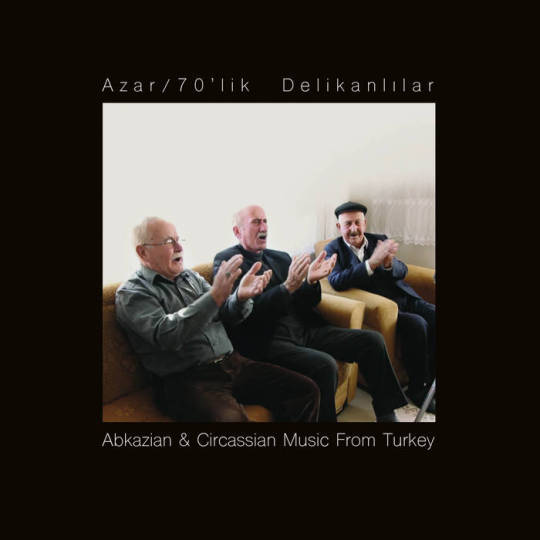
View On WordPress
#Abkhazia#Abkhazians#Adyghe (people)#Circassian Day of Mourning (May 21)#Circassian diaspora#Circassian folk music#Circassian genocide#North Caucasus#Ored Recordings#Russo-Circassian War#Timur Kodzoko
0 notes
Text
First Russian Military Operation Outside Its Territory. Ukrainian Armed Forces Combat Operations in Kursk Region.
You are watching the news from the weekly rally at the Russian Embassy in Lisbon. Today is August 10, 2:30 PM.
The five-day war in Georgia from August 8 to 12, 2008, was Russia's first "special operation" outside its territory. Journalist Georgy Kobaladze says that Georgian authorities commemorate the anniversary on August 7, marking the Ossetian army's attack on a Georgian village near Tskhinvali as the beginning.
https://www.svoboda.org/a/kapkan-i-vtorzhenie-15-let-s-nachala-rossiysko-gruzinskoy-voyny/32538906.html
The Ossetians trace the origins of the war with Georgia back to 1989, when the USSR was collapsing.
https://www.bbc.com/russian/features-45106205
After the Dagomys Agreement, Georgia maintained difficult but peaceful relations with the regions of Abkhazia and the Tskhinvali region (South Ossetia). In 2008, Georgia began to consider joining NATO.
https://www.youtube.com/watch?v=mE7_p7WISo4
Matthew Bryza, who was involved in the US mediation plan for this war, told Dozhd in an interview how steps to contain Russia were removed during the process of working with the German Foreign Ministry.
https://youtu.be/uK6pyU5DuQM?feature=shared&t=294
The human rights organization "Human Rights Watch" in its research discusses violations of humanitarian law on both sides, including systematic arson, robbery, and beatings of residents of Georgian villages by South Ossetian forces after the withdrawal of Georgian troops.
https://www.hrw.org/reports/georgia0109ruweb.pdf
In 2021, the Strasbourg court found that Russia exercised control over Abkhazia and the Tskhinvali region and therefore bears responsibility for these violations. The Russian representative stated in court that the fragments of the Iskander missile used by Russia, presented by the Georgian side, were stolen, dismantled, and planted by the CIA.
https://www.bbc.com/russian/features-55737376
Volunteer and activist David Katsarava said in an interview with Dozhd: "For us, the war against Ukraine is a continuation of ours."
https://www.youtube.com/watch?v=uK6pyU5DuQM
Since August 6, the Armed Forces of Ukraine have been conducting an operation in the Kursk region. The combat zone has already reached 430 square kilometers. The YouTube channel "The Insider" reported briefly on the situation: people are evacuating on their own, Putin is distributing the usual 10 thousand rubles, and Russian generals ignored reports of Ukrainian forces concentrating on the border.
https://www.youtube.com/watch?v=8vbljcaYy1k
On August 9, politician Yulia Navalnaya stated: "Putin's war has finally come to Russia." She addressed those aiding Putin's war efforts: "No one will forget what you did to our country. You are working for a killer, but it's never too late to stop."
https://www.youtube.com/watch?v=8-HoR9OJ6mU
On August 7, Vladimir Osechkin held a stream on his YouTube channel in memory of Oleksandr Ishchenko, a member of the Azov regiment who was killed in Russian captivity, and called for information about this crime to be sent to him for investigation.
https://www.youtube.com/watch?v=jBi3sO5Rq5M
Azov commander Svyatoslav Palamar published a forensic medical examination report on his Facebook page confirming the brutal murder and violation of the Geneva Convention relative to the Treatment of Prisoners of War.
https://www.facebook.com/share/p/FWoEAf9XxGmrShd2/
On January 12 of this year, the Memorial Human Rights Center recognized prisoners of war from the Ukrainian Azov Regiment as political prisoners, as they consider the Supreme Court's decision to recognize the Azov Regiment as a terrorist organization to be unlawful.
https://memopzk.org/news/my-schitaem-politzaklyuchyonnymi-voennoplennyh-iz-ukrainskogo-polka-azov/
Proofs and links in the description. Subscribe and help!
52 notes
·
View notes
Text
"Today it is Ukraine, and tomorrow it may be East Asia," said Fumio Kishida, the Japanese prime minister
The Peace Summit Declaration was supported by 80 countries and 4 organizations.
Earlier, Reuters published a draft declaration stating that Russia should hand over control of the Zaporizhzhia nuclear power plant to Ukraine, open access to ports in the Black and Azov Seas, release all Ukrainian prisoners of war, and return children deported from Ukraine.
Among those who did not sign the declaration are Saudi Arabia, Thailand, India, Mexico, South Africa, Brazil, and the United Arab Emirates.

The picture shows the countries and organizations that supported the declaration.
Important statements that were made:
▪️ "Putin has put forward proposals to resolve the war. But he's not talking about negotiations, he's talking about Ukraine's surrender," US Vice President Kamala Harris.
For context, Putin was talking about the withdrawal of the Defense Forces from Donetsk, Luhansk, Zaporizhzhia, and Kherson regions, the lifting of sanctions, and Ukraine's refusal to join NATO.
▪️The president of Georgia confirmed that Russia plans to open a new naval base in Abkhazia. The Austrian chancellor called for pressure on Moscow to agree to a real peace process, while the Croatian prime minister added that his country is for peace where victims should not surrender.
▪️"Our efforts have led to the reunification of 34 Ukrainian children with their families. And we continue to work on the reunification of many others," the Prime Minister of Qatar.
▪️"The consequences of war are felt all over the world. Today, a farmer in Kenya knows about the war in Ukraine… This summit should not be a meeting of friends only, and both friends and enemies should be here," the President of Kenya. The need to involve Russia was also mentioned by a representative of Saudi Arabia, who said that "difficult compromises" are needed for the negotiations.
▪️"Today it is Ukraine, and tomorrow it may be East Asia… Peace in Ukraine should be based on international law and without changing borders," the Japanese prime minister said.
Zelensky responds to Putin's ultimatum
"This is a mistake that is useful for us. Here, behind the scenes, countries said that with this message, Putin conveyed to the whole world that everything he had said before about a real desire to end the war was multiplied by zero. All countries said this. Even those that have a different view, or had a different view. And this is also a success for us," the President said.
#ukraine#current events#summit meeting#important#signal boost#stand with ukraine#russia is a terrorist state#genocide#stop the genocide#russian invasion of ukraine#russo ukrainian war#український tumblr#український тамблер#arm ukraine#український блог#укртумбочка
24 notes
·
View notes
Text
Руины санатория «Гульрипш» Николая Николаевича Смецкого. Абхазия.


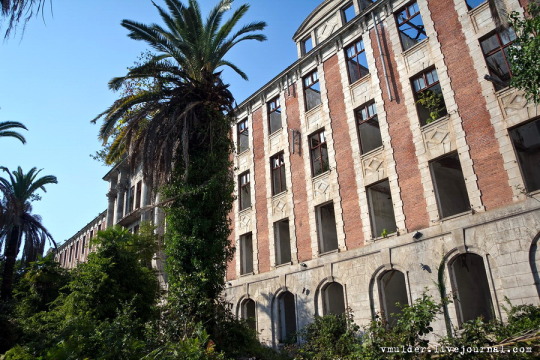

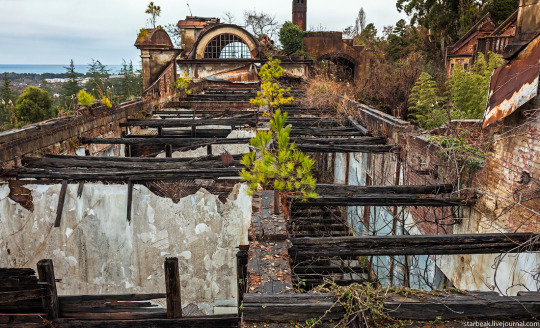
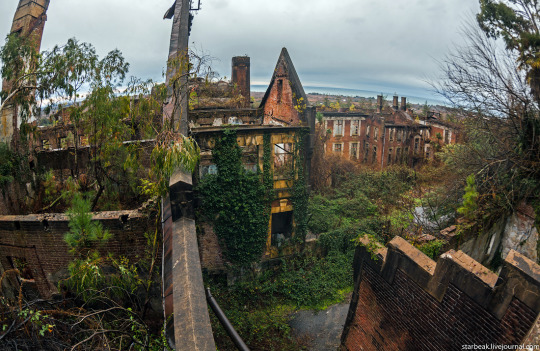




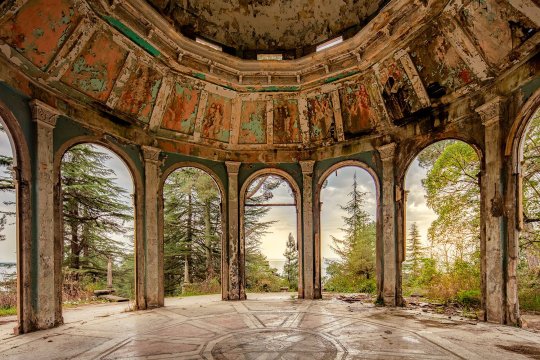
Красный корпус
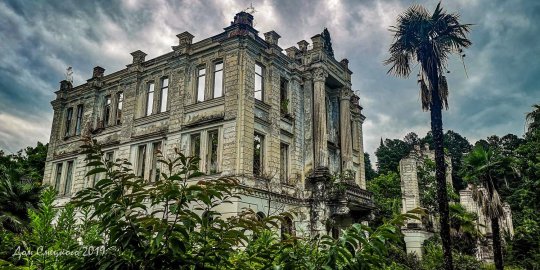

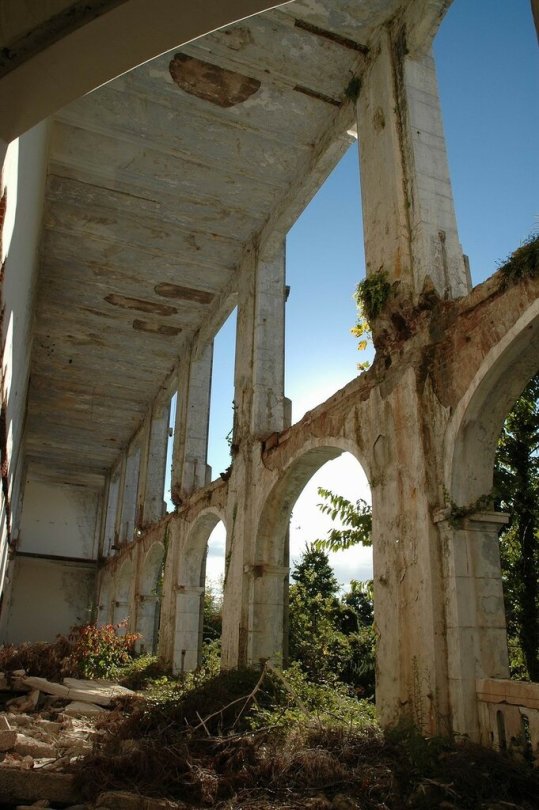
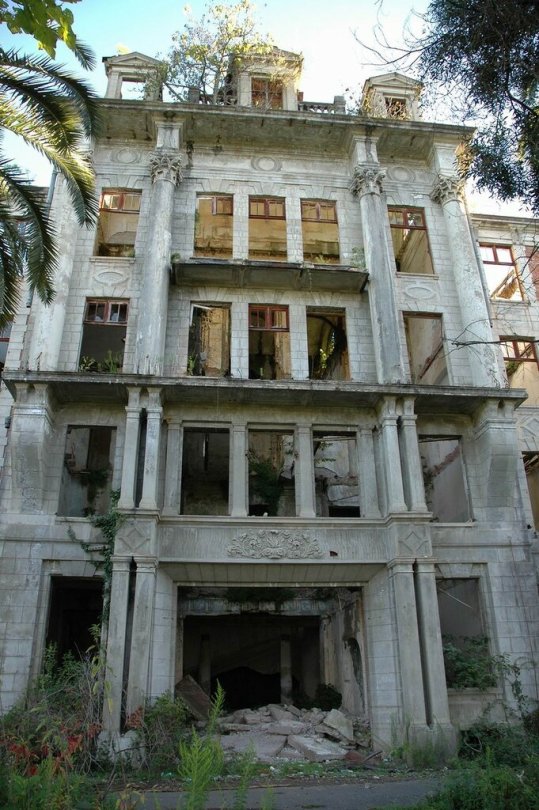

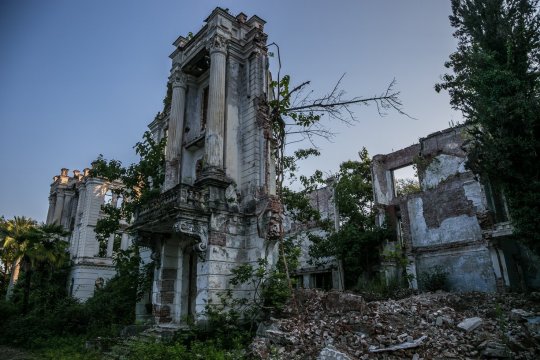
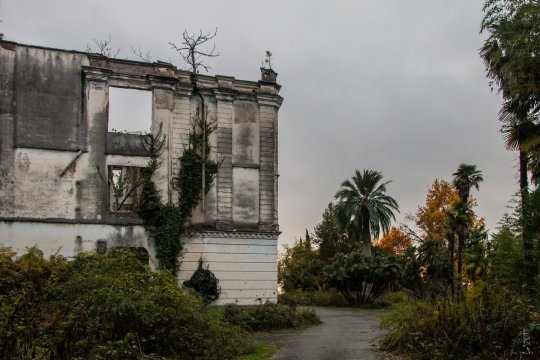

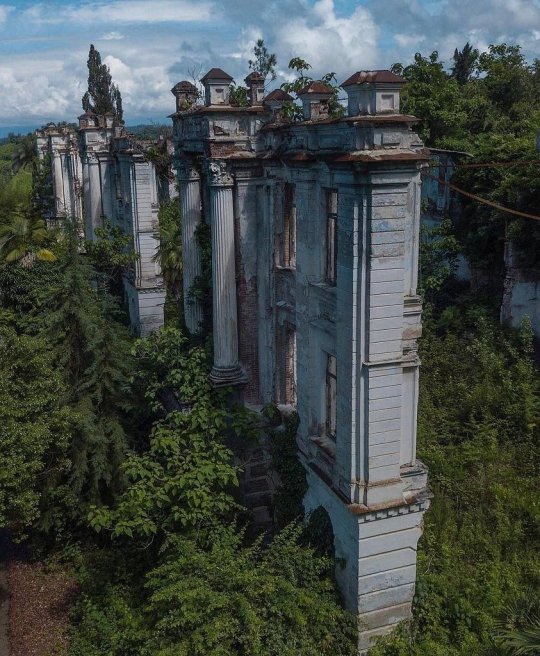
Белый корпус
Руины двух корпусов туберкулезного санатория «Гульрипш» дореволюционной постройки находятся недалеко от автодороги в 10 км к юго-востоку от Сухума.
В 1913 г. Смецким был построен четырёхэтажный Красный корпус из 112 комнат на 250 мест. На то время это здание было самым большим в Абхазии. Рядом был устроен огромный сад, где росли кокосы, агавы, акации. Про это здание существует забавная легенда. Якобы жена Смецкого сама была больна туберкулезом, и от одного врача он услышал совет: сделайте так, чтобы каждую ночь она спала на новом месте, где воздух чист от бацилл. Для этого и был построен дом-дворец из 365 комнат, который помог женщине выздороветь.В 1914 году Смецкий передал Красный корпус Красному Кресту для лечения инвалидов войны. Белый корпус в 1916 году был передан Министерству просвещения для лечения учителей и учащихся. В 1922 году дворцы национализировали и устроили в них санаторий имени Ленина.
Ruins of the sanatorium "Gulripsh" of Nikolai Nikolaevich Smetsky.
The ruins of two pre-revolutionary buildings of the Gulripsh tuberculosis sanatorium are located near the highway 10 km southeast of Sukhum. In 1913, Smetsky built a four-story Red building of 112 rooms with 250 seats. At that time this building was the largest in Abkhazia. Nearby there was a huge garden where coconuts, agaves, and acacias grew. There is a funny legend about this building. Allegedly, Smetsky’s wife herself was sick with tuberculosis, and from one doctor he heard advice: make sure that every night she sleeps in a new place where the air is clear of bacilli. For this purpose, a house-palace of 365 rooms was built, which helped the woman recover.
In 1914, Smetsky donated the Red Corps to the Red Cross for the treatment of war invalids. The White Building was transferred to the Ministry of Education in 1916 for the treatment of teachers and students. In 1922, the palaces were nationalized and a sanatorium named after Lenin was built in them.
Вот как эти строения выглядели раньше, архивные фото.
This is what these ruins looked like before, archival photos.
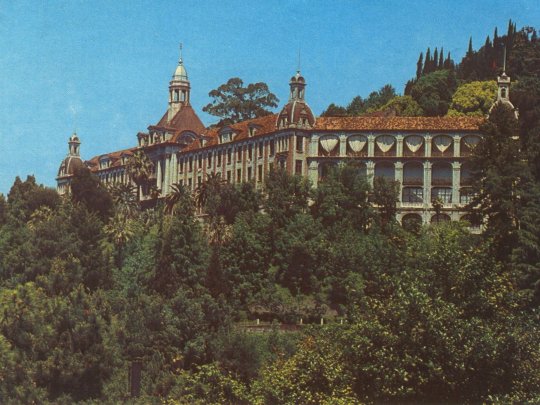
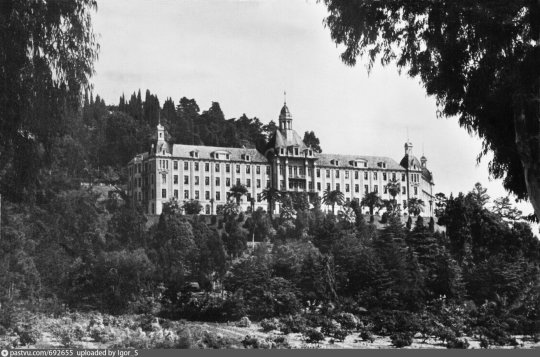
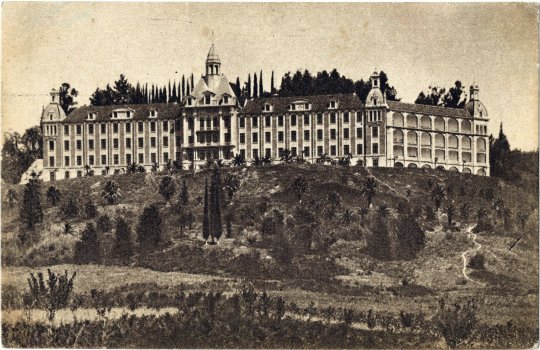


Источник : :https://ru-abandoned.livejournal.com/1690647.html
//idei.club/raznoe/10915-dvorec-smeckogo-v-abhazii.html.
//yarkolp.livejournal.com/4799.html
//dzen.ru/a/YGcj4mCNXCBzoNEt?utm_referer=www.google.com
glebzverev.ru/abkhazia/sukhum-sanatoriy-smetskogo.htm
#Абхазия#история#Заброшка#Заброшенное#заброшенные места#санаторий#Гульрипш#Н.Н. Смецкий#природа#фотография#Abkhazia#history#abandoned#Gulripsh#Smetsky#Architecture#abandonedplaces#abandonedbuilding#sanatorium#nature#abandoned photography#lost in time#photography#lost places
43 notes
·
View notes
Text




Over 16 days in the South Caucasus region of Georgia, a war of Independence would be fought. With Russian-backed separatists and Russian forces fighting the Georgian military for control of two areas, namely South Ossetia and Abkhazia, both of which would really only be recognized by Russia themselves. This war is notable for being the first case of the strategy we would more recently see put in place in Ukraine's Eastern Regions. Russia would back separatists in an area, and then invade with the justification of liberating the separatists. This would, much like in Ukraine, result in a genocide of the local populations by the Russian forces.
8 notes
·
View notes
Photo
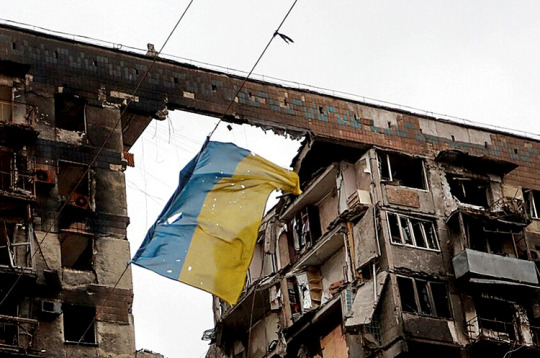
The date of 24 February is a terrible date for every Ukrainian and every decent person. Today is the anniversary of a full-scale invasion russia in Ukraine.
Many experts believed that russia would be able to capture Ukraine in a maximum of 10 days. But we were able to hold on. Now the Ukrainian are fighting for our freedom and independence.
Our ZSU give up their lives to protect othersю Unfortunately, the price of our freedom is too high. But the cost of defeat will be many times higher.
You can help Ukraine win this war.
How to help the Ukrainian army you can read here: Come Back Alive
And now...
In this publication, I want to remind the whole world what Ukraine experienced during the year of the bloody war. And I want to once again remind you the real face of the “russian peace” is destructions, fear and death.
Warning: This publication contains images and details readers might find distressing
In fact, this war began in 2014, when russia annexed Crimea and seized Donetsk and Luhansk regions. It is also true that russia planned military aggression against Ukraine in advance. Even if there had been no Revolution of Dignity (also known as the Maidan Revolution or the Ukrainian Revolution), putin would have found another excuse to invade Ukraine.
If you are interested in learning more about those events, you can check out this articles:
Conflict in Ukraine’s Donbas: A Visual Explainer
The invisible war: 8 years of battles in Donbas
10 facts you should know about russian military aggression against Ukraine
How the Revolution of Dignity changed Ukraine: Ten achievements
Revolution of Dignity (WIKI)
Of course, putin and his propaganda machine have always denied putin's aggressive actions towards Ukraine and other countries (for example the war in Abkhazia, the second Chechen war, the Transnistria conflict, the 2008 russo-Georgian war and so on).
Now Putin's propaganda machine is completely crazy and is talking fierce nonsense. So, in this there is absolutely nothing surprising. Do you know why? All because the propagandists hey more often than not repeat exactly what mr.asshole believes.
I recommend watching the putin's address to the Ukrainians before the start of a full-scale invasion on February 2022 [HERE].
Below are some quotes from the video:
“The Ukrainian army is waiting to get into NATO. … The West has explored the territory of Ukraine as a future theater, future battlefield, that is aimed against Russia.“
“Now, almost every day, they [Ukrainian military forces] are shelling settlements. They have amassed large troops. They are using vehicles and other heavy machinery. They are torturing people, children, women, elderly people. It does not stop. We have seen no end to it.”
It's an amazing mixture of bullshit and senile dementia. Thanks a lot to Michael Rossi Poli Sci for adding eng subtitles to this video. This speech should be recorded in history. You can also read a wonderful article by Max Fischer, in which he analyzed this putin's speech:
Word by Word and Between the Lines: A Close Look at Putin’s Speech

Ukraine: civilian casualties
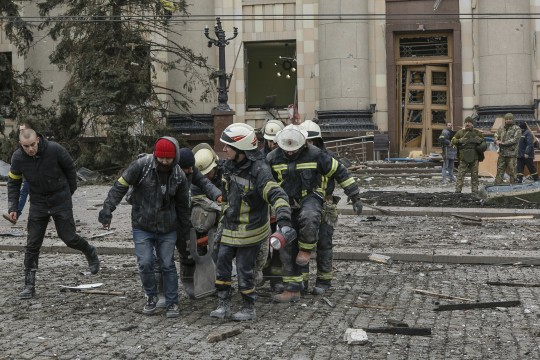
Since the beginning of the full-scale invasion, the actions of the russian occupants have resulted in the death of at least 8,006 Ukrainian civilians, and 13,287 injuries.
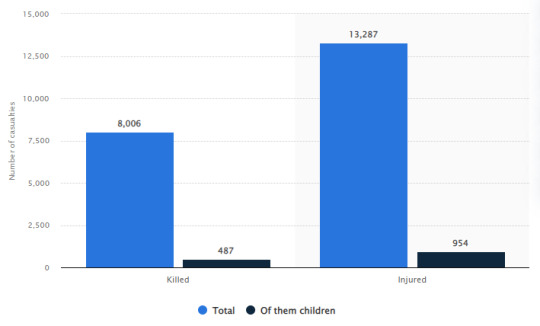
[Source 1]
[Source 2]
[Source 3]
P.S. It is impossible to establish the exact number of injured due to active hostilities and the temporary occupation of part of the territory of Ukraine
Ukraine: Children of war
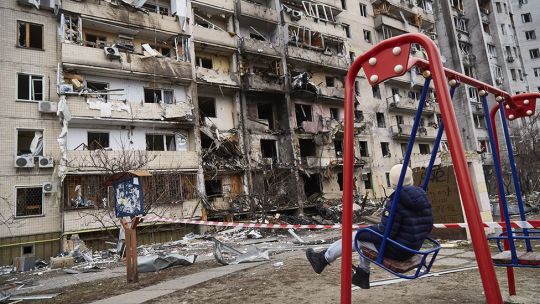
At least 461 children have been killed and 927 children have been wounded by the russian army forces since the beginning of the war.

[Source]
P.S. It is impossible to establish the exact number of injured children due to active hostilities and the temporary occupation of part of the territory of Ukraine
Ukrainian refugees
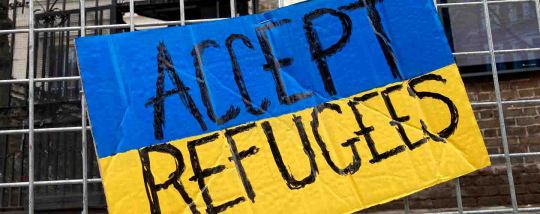
Headline statistics. The UNHCR records 8,087,952 refugees from Ukraine across Europe as of 20 February 2023. This amounts to around 20% of the Ukrainian population (estimated by Eurostat as at 2021).
4,863,513 refugees have registered for temporary protection in Europe.
The number of people who fled Ukraine since February 24 is estimated at 18,843,973, while 10,438,840 have returned to the country since February 28.
90% of Ukrainian refugees are women and children, while most Ukrainian men age 18 to 60 are banned from leaving the country
The vast majority of refugees initially entered neighbouring countries to the west of Ukraine (Poland, Slovakia, Hungary, Romania, and Moldova). Around 3 million people then moved further west to other European countries.
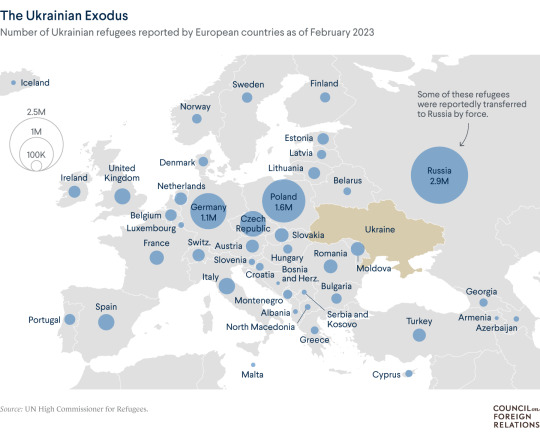
[Source 1]
[Source 2]
[Source 3]
[Source 4]

- The biggest tragedies of the war -
9 March 2022 - Mariupol hospital airstrike
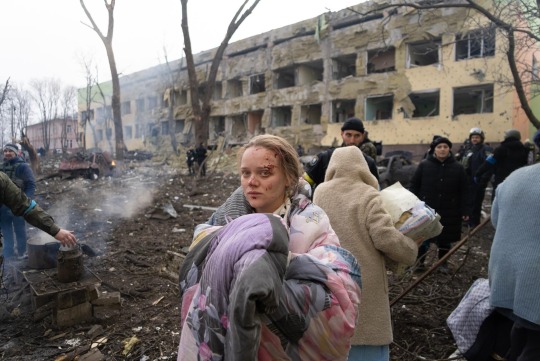
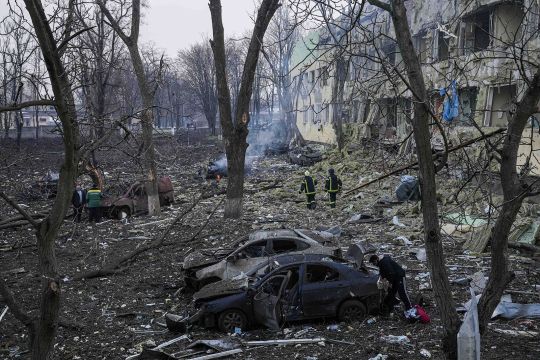
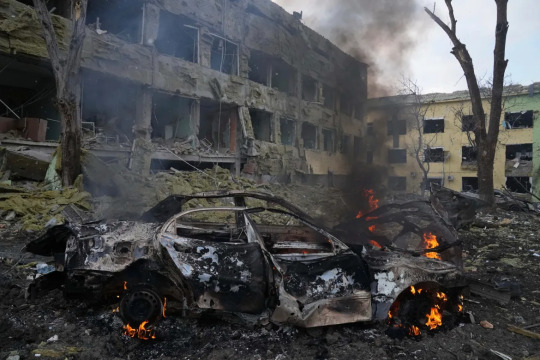
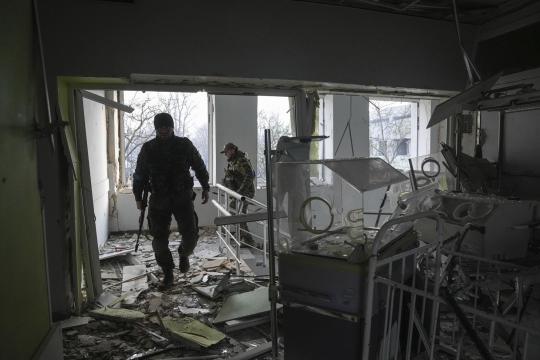
At least 5 people were killed and at least 16 were wounded during the airstrike. A pregnant woman and her baby have died next day after russia bombed the maternity hospital
16 March 2022 - Mariupol theatre airstrike
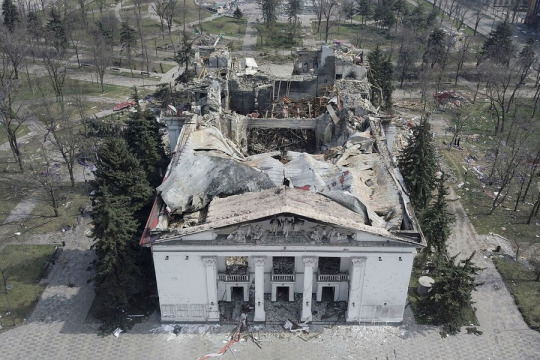
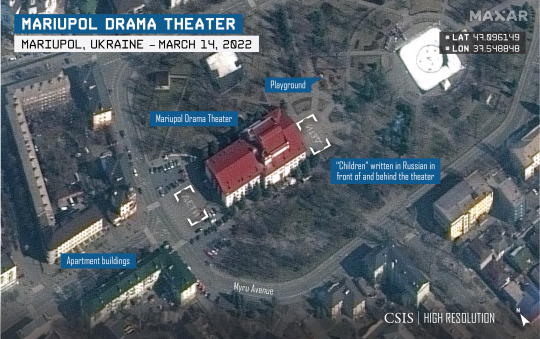
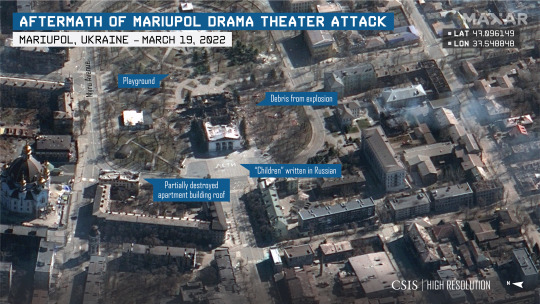
The russian armed forces bombed the Donetsk Academic Regional Drama Theatre in Mariupol, Ukraine. It was used as an air raid shelter during the siege of Mariupol, sheltering a large number of civilians. Associated Press reported that around 600 civilians were killed in the Russian airstrike both inside and outside the theatre building.
2 April 2022 - The Bucha massacre
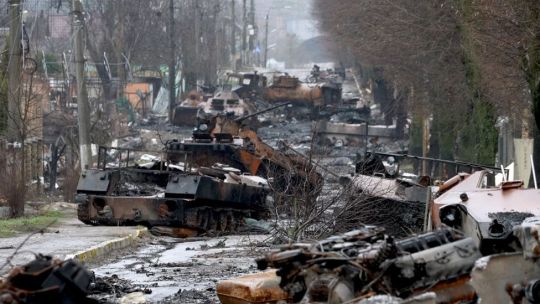
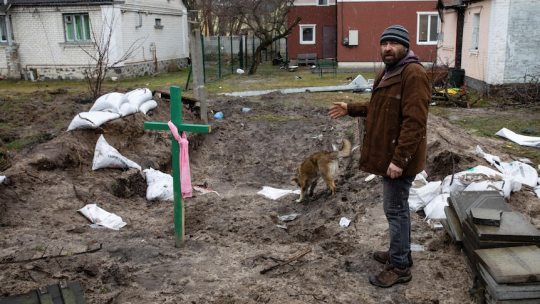
Photographic and video evidence of the massacre emerged on 1-2April 2022 after russian forces withdrew from the city
More than 650 were shot dead by russian soldiers. As of 13 June 2022, Ukrainian authorities said that 1,316 bodies had been uncovered in Kyiv Oblast including Bucha since the Russian withdrawal. The same day seven more victims were also recovered from a forest grave.
According to the mayor of Bucha Anatoly Fedoruk, just in the first day after Bucha was liberated, local authorities collected 280 bodies and buried them in mass graves. On March 12, it was reported that the citizens of Bucha buried 57 bodies in another mass grave, near a local church.
Below is a satellite image of the graves in Bucha (Supplied: Maxar Technologies/ABC)
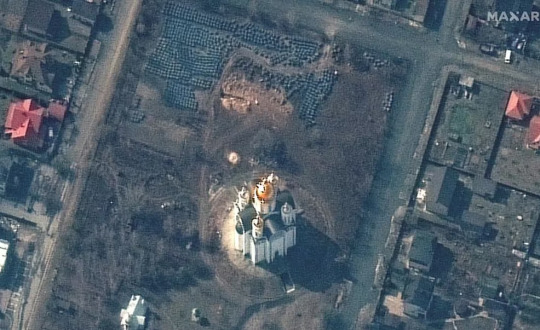
At least 20 bodies seen in one street in town near Kyiv. Many of the victims shot by the aggressors. Their hands were tied.
On 8 August 2022, officials released a count of civilian deaths in the town of Bucha alone: 458 bodies, 419 with signs of shooting, torture, or violent trauma, and 39 apparently of natural causes but being scrutinized for their relationship to the Russian occupation. 366 were male, 86 female, and five of indiscernible gender due to their condition. Nine were children. 50 bodies remained unidentified, along with body parts and ash
8 April 2022 - Kramatorsk railway station attack
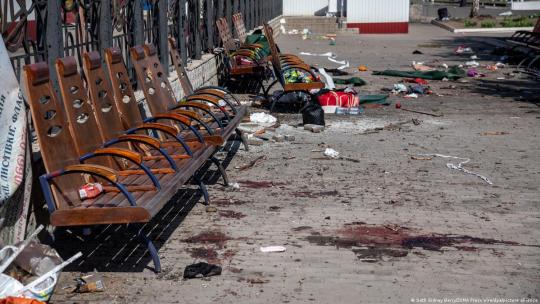
The strike killed 60 civilians (including seven children) and wounded more than 110.
27 June 2022 - Kremenchuk shopping mall attack
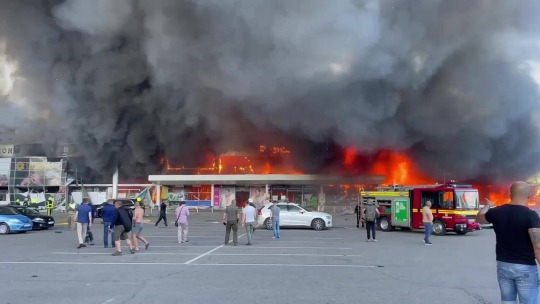
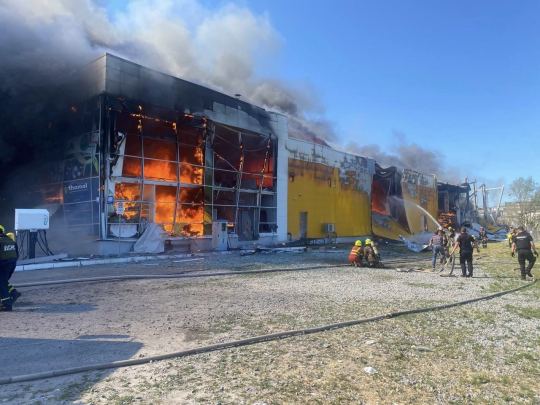
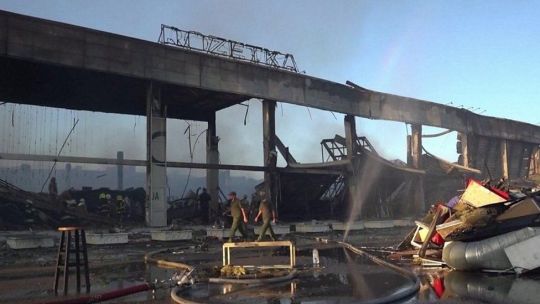
russian invaders launched a missile attack on a shopping and entertainment center in the city of Kremenchuk, Poltava region, where at that moment there were over 1,000 civilians.
A fire broke out and the attack killed at least 20 people and injured at least 56.
14 July 2022 - Vinnytsia missile strike
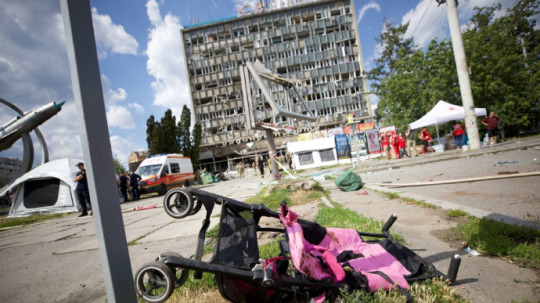
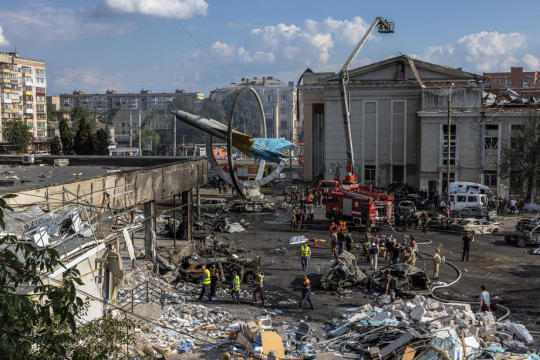
Russian missiles struck the city of Vinnytsia in central Ukraine, killing at least 23 people, including 3 children.
29 July 2022 - Olenivka prison massacre
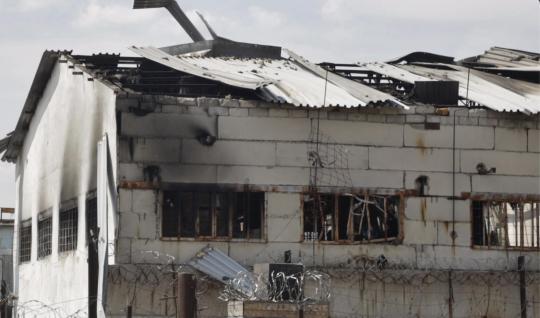
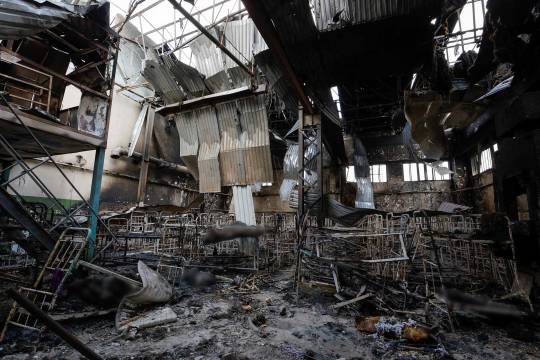
On 29 July 2022, during the Russian invasion of Ukraine, a building housing Ukrainian prisoners of war in a Russian-operated prison in Molodizhne near Olenivka, Donetsk Oblast, was destroyed, killing 53 Ukrainian prisoners of war (POWs) and leaving 75 wounded.
The prisoners were mainly soldiers from the Azovstal complex, the last Ukrainian stronghold in the siege of Mariupol.
10 September 2022 - Battle of Izium
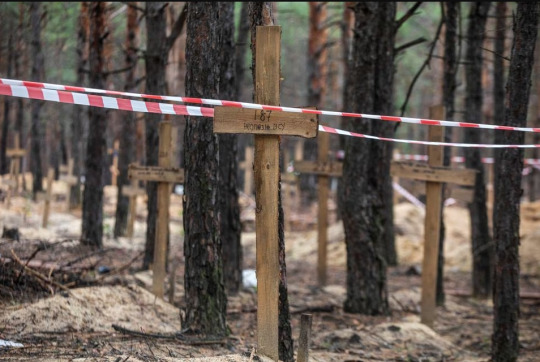
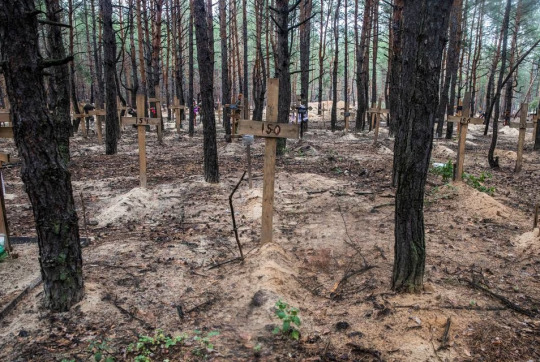
When Ukrainian forces recaptured the town during the 2022 Ukrainian Kharkiv counteroffensive and local mass graves with 440 bodies were found.
10 October 2022 - russian massive rocket strikes of Ukraine
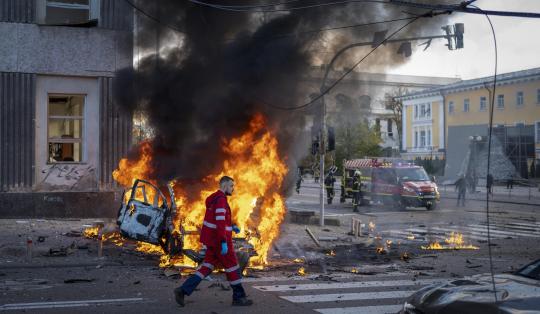
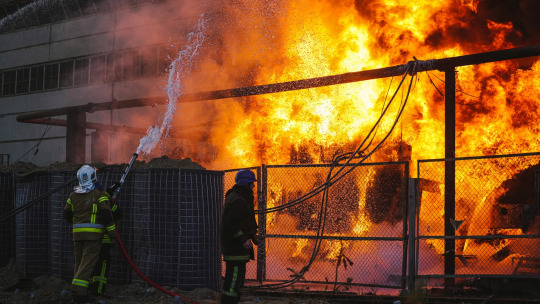
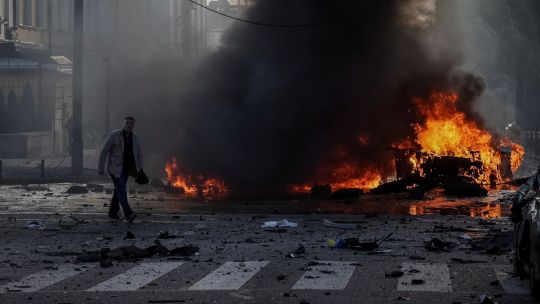
11 important infrastructure facilities in 8 regions including the city of Kyiv were damaged as a result of the strikes. Around 30% of the energy infrastructure in Ukraine had been hit by the missile attacks.
Russian missiles hit at least 14 regions of which the most intense were in Kyiv. Explosions were reported in Lviv, Ternopil and Zhytomyr in Western Ukraine; Kyiv, Dnipro and Kremenchuk in Central Ukraine; Zaporizhzhia in Southern Ukraine; and Kharkiv in Eastern Ukraine.
As a result of rocket strikes on energy facilities, many cities went into a blackout. Hot water also stopped running in apartment buildings.
At least 14 people have died and another 97 have been wounded as a result of russian massive rocket strikes.
14 January 2023 - Strike on residential building in Dnipro
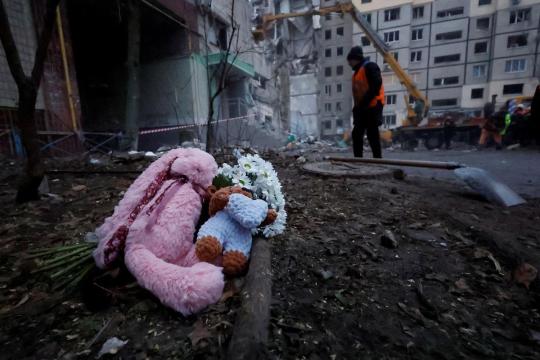
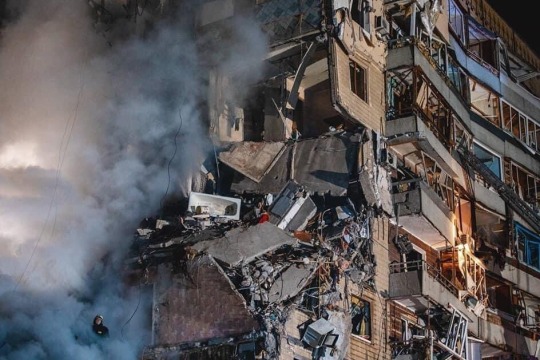
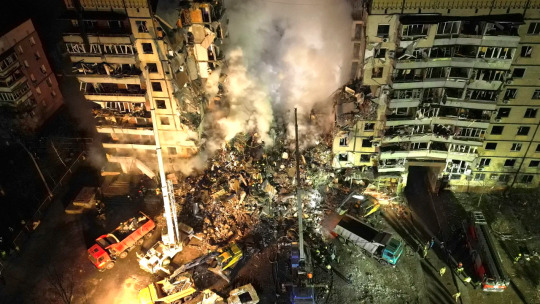

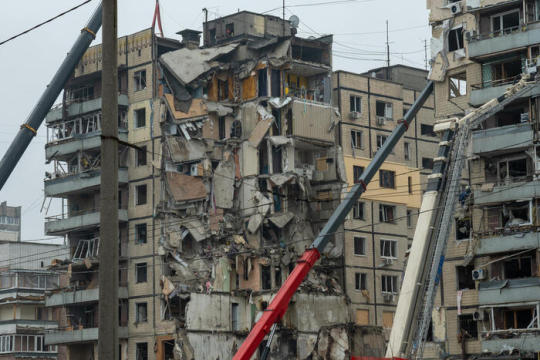
On 14 January 2023 at about 3:30 p.m., a Russian Kh-22 type missile hit Ukrainian nine-story residential building in Dnipro.
The missile strike killed 46 people and wounded nearly 80, among them 12 children
The strike destroyed 72 apartments and damaged another 230. The destruction left about 400 people homeless.

Above, I told you only about the most famous war crimes of Russia. But killings of Ukrainians and shelling of cities happening every day. Unemployment in my country is about 30%. Many cities and villages were razed to the ground. The lives of millions of my countrymen were destroyed.
This is what happens when a crazy dictator decides to conquer foreign lands. We must stop putin as soon as possible!
***
Слава Україні та слава ЗСУ!
Низький уклін усім українським захисникам, ви наші герої <3
57 notes
·
View notes
Text
Battle of Sukhumi, War in Abkhazia. August 14 – August 18, 1992
16 notes
·
View notes
Text
When Russia launched its full-scale invasion of Ukraine in February, discussions emerged about the imperial nature of the war. Scholars who spoke up about it were quickly dismissed in certain Western academic and political circles.
Some, especially the self-professed “anti-imperialists”, claimed Russia was “provoked” and portrayed Ukraine’s resistance as a “Western imperial” plot. Others considered analyses of Russian imperialism as having a pro-war, hawkish agenda or being a reflection of narrow ethno-nationalist sentiments.
But for scholars from the post-Soviet space – from places that have suffered from Russian aggression and imperialism – these reactions were hardly a surprise. They had been ignored and dismissed before.
[...]
Soviet coloniality was dismissed also because knowledge about the Soviet Union in the West was Russocentric. The Soviet Union was often referred to simply as Russia. There was little knowledge about non-Russian people. Non-Russian émigrés who fled to the West and wrote about Soviet coloniality with firsthand experience of Soviet imperialism were dismissed as anti-Soviet conservative ideologues.
Importantly, the Soviet Union also became a space of projections for those who looked for ways to criticise capitalism and Western imperialism. Those who blamed capitalism for oppression believed that eliminating capitalism would end all forms of oppression. For them, the Soviet Union was an internationalist project that brought equality and freedom to formerly subjugated peoples.
Violence against various nations and ethnic groups was either ignored or treated as a necessary evil of the transition to communism.
Western scholarship also overwhelmingly focused on the Soviet metropoles – Moscow and Leningrad. They knew very little, if at all, about the Soviet peripheries, which meant that nobody really understood the uprisings in Central Asia, the Caucasus or the Baltics from the late 1980s onwards or the bloodshed in Tajikistan, Nagorno-Karabakh, Transnistria, Abkhazia, South Ossetia and later Chechnya.
[...]
In Russia itself, the dominant narrative was one of victimhood. Russians learned to see themselves as a special nation that sacrificed its own wellbeing for the sake of non-Russians in the Soviet Union. “Let us stop feeding them” was the slogan Russians used to explain Moscow’s decision to let the colonies go in 1991.
[...]
This is how late Professor Mark von Hagen recalled in 2016 the political atmosphere back then: “Again, George Bush … was defending Gorbachev until the very last possible moment because he and the United States government at that level, with a few dissenting voices, wanted to keep the Soviet Union together because they were so afraid of the kind of crazy, fascist nationalism that they thought the Ukrainians represented.”
[...]
That is why Western academia and political circles had little to say about the genocidal wars Boris Yeltsin and his successor, Vladimir Putin, led in Chechnya. Rather than seeing people claiming sovereignty and nationhood, the West readily bought into their portrayals of Chechens as bandits, nationalists and terrorists. That is why they also failed to see Russian imperial ambitions in Eastern Europe – the 2008 war on Georgia, the annexation of Crimea, etc – as such.
#soviet union#russia#communism#ussr#colonialism#postcolonialism#war#socialism#politics#history#academics
583 notes
·
View notes
Text

A very important thread for anyone who still has russian friends: things you should check
"My "friend" from the russian federation who "supports Ukraine and is against the war" BUT:
🤡 considers her grandfather, who fought in Ukraine and brought home gold, a hero of the USSR and russia
🤡 says they don't make nuclear weapons at their nuclear weapons factory while their whole town has cancer
🤡 laughs at the Ukrainian language.
🤡 was happy when, on the day of the invasion, they cut the dollar rate because she made money on it
🤡 complains that Ukrainians write petitions, I quote: because of which PayPal is blocked
🤡 goes to memorial ceremonies for dead russian soldiers
🤡 protects USSR because "life was better in it."
🤡 her city is military and closed, and the entrance is by passes because there is a nuclear weapons factory. She claims that the city is closed so that no one comes to it from a stranger and does not open their business or cafe, not because it is a military and nuclear facility
🤡 they have been taught DIFFERENT history of the world since childhood, so she does not even have a rough idea, what countries are around russia and how many people russia killed in them
🤡 claims that the Chechen wars were for the best
🤡 uses the word "Abkhazia" [occupied Georgian territory]
🤡 she has "refugee" friends from Ukraine who occupy budget places in St. Petersburg and they piss her off because she wanted to be on the budget. Moreover, they told her that Ukraine is really bad.
🤡 at school, university, and at work, money is being collected from EVERY employee for the russian army, which she can not refuse and gives up
These are all real facts that were written to me by girls who were very scared of the war, sitting in their unwashed russia
🤡 she didn't allow me to talk about the war because "our dialogue is for leisure", and the war spoils her mood
If you still have "friends" from the russian federation who are against the war, then you have no idea what is deeper in their minds. And these nuances will come out like a piss in a swimming pool. These cadres of a completely different upbringing.
🤡 easily says, "Get out of Ukraine." Or maybe you, whore, will leave russia and not sponsor the war with your taxes? Why should I go?? You're a cunt, you fucking matryoshka
🤡 thinks our news is bullshit. I tell her about the bombs, and she tells me, "Who said that?? Your TV??"
This is a year after the beginning of the invasion 🤡 [screens] thinks that most or all of Ukrainians still speak russian
36 notes
·
View notes
Text


Flag Wars Bonus Round
8 notes
·
View notes
Photo

The World in 2100
by u/Aofen
The sea level rise in this timeline is on the low-mid end of IPCC's predictions, a little over 1 foot above current levels. The Maldives and the Marshall Islands (the two extremely-low lying countries for which this is a major threat), invest extensively in mitigation measures and coastal defenses. In both countries some lower lying outer islands are abandoned, and the population becomes more concentrated in the better-defended capitals. Several similarly low-lying small islands, such as Tangier in Virginia, are abandoned. Antarctica, although warmer than it is today, is still a giant cold nature preserve. There is more economic activity in the far north though, with the Northwest and Northeast passages being more viable than today.
The Congo and South Sudan, being currently much poorer and more dysfunctional than the rest of the East African Community, are left out of several of the economic integration agreements in the 2020s and 2030s. The states of the EAC that do not federalize generally retain close economic relations with the new federation, particularly Rwanda and Burundi who remain in a currency union and trade block with it.
The Nagorno-Karabakh conflict remains a sort of frozen conflict throughout much of the 21st century. Azerbaijan's authoritarian government is toppled in a 2034 revolution (after fighting another inconclusive war with Armenia in 2030), and the new Azeri government is in a slightly more compromising mood. They eventually agree to a peace deal in 2050. South Ossetia and Abkhazia (pressured by the withdrawal of Russia's total support) similarly make peace deals with Georgia where they agree to cede some territory in exchange for recognition.
47 notes
·
View notes
Text
Holidays 8.28
Holidays
Bow Tie Day
Crackers Over the Keyboard Day
Criminal Appreciation Day
Crumbs Between the Keys Day
Dream Day Quest and Jubilee
828 Day
Emerati Women’s Day (UAE)
Emmett Till Day
End of the Fairy Tale Day
Giving Black Day (a.k.a. Give 828)
Goldenrod Day
Gone-ta-Pott Day [every 28th]
Grandparents’ Day (Mexico)
Green Shirt Guy Day
Higalaay Festival (Cagayan de Oro, Philippines)
I Have a Dream Day
International Read Comics in Public Day
Makaton International Awareness Day
Manifest 828 Day
Mariamoba (Republic of Georgia)
National Bow Tie Day
National Grandparents Day (Mexico)
Native Hawaiian & Pacific Islander (NHPI) Equal Pay Day
National Over It Day
National Power Rangers Day
National Sport Sampling Day
National Thoughtful Day
Nativity of Nephthys (Egyptian Goddess of Love)
Race Your Mouse Around the Icons Day
Radio Commercial Day
Rainbow Bridge Remembrance Day
Russian Germans Day (Germany)
Scientific American Day
Significant Historical Events Day
Speeding Ticket Day
Tan Suit Day
Tom Thumb Locomotive Day
Watermelon Day (French Republic)
World Day of Turners Syndrome
Food & Drink Celebrations
National Cheese Sacrifice Day
National Cherry Turnover Day
National Red Wine Day
New England Apple Day
Stuffed Green Bell Peppers Day
Subway Sandwich Day
Independence & Related Days
Holy Empire of Reunion (Declared; 1997) [unrecognized]
Kingdom Proclamation Day (Montenegro)
Luana (Declared; 2019) [unrecognized]
Moldova (from USSR; 1991)
Ohio Empire (Declared; 2008) [unrecognized]
Popular Consultation Anniversary Day (East Timor)
4th & Last Wednesday in August
Hump Day [Every Wednesday]
La Tomatina (World’s Biggest Food Fight; Buñol, Spain) [4th Wednesday]
National Meals on Wheels Day (Australia) [Last Wednesday]
Tug-of-War Day [Last Wednesday]
Wacky Wednesday [Every Wednesday]
Website Wednesday [Every Wednesday]
Weird Wednesday [4th Wednesday of Each Month]
Whatever Wednesday [4th Wednesday of Each Month]
Whole Grain Wednesday [Last Wednesday of Each Month]
Willing-To-Lend-A-Hand Wednesday [Wednesday of Be Kind to Humankind Week]
Wishful Wednesday [Last Wednesday of Each Month]
Weekly Holidays beginning August 28 (4th Full Week of August)
Paralympic Summer Games (Paris, France) [thru 9.8]
Festivals Beginning August 28, 2024
Apollonia Festival of Arts (Sozopol, Bulgaria) [thru 9.7]
Best in the West Rib Cook-off (Sparks, Nevada) [thru 9.2]
Halifax Fringe Festival (Halifax, Canada) [thru 9.8]
Johnson County Fair (Clarksville, Arkansas) [thru 8.31]
La Tomatina (Buñol, Spain)
South Dakota State Fair (Huron, South Dakota) [thru 9.2]
Sweet Corn Festival (Millersport, Ohio) [thru 8.30]
Twin Falls County Fair and Magic Valley Stampede (Twin Falls County, Idaho) [thru 9.2]
Venice International Film Festival (Venice, Italy) [thru 9.7]
Walla Walla Fair & Frontier Days (Walla Walla, Washington) [thru 9.1]
Feast Days
Alexander of Constantinople (Christian; Saint)
Andraste (Celtic Book of Days)
Assumption Day [Roman Catholic] (a.k.a. ...
Assumption of the Blessed Virgin Mary (Abkhazia)
Falling Asleep of the Blessed Virgin Mary (Canada)
Feast of the Assumption (Christian)
Feast of the Blessed Virgin Mary (Anglican)
Ferragosto (Italy)
Dormition of the Most Holy Mother of God (Eastern Orthodox)
Mary, Mother of Our Lord (Lutheran)
The Solemnity of the Assumption of the Blessed Virgin Mary (Sacred Heart)
Augustine of Hippo (Christian; Saint) [brewers] *
Ayyankali Jayanti (Kerala, India)
Constant Troyon (Artology)
Edmund Arrowsmith (Christian; Saint)
Edward Burne-Jones (Artology)
Feast of the Mother of God (Georgia, Macedonia, Serbia)
Festival for Luna (Ancient Rome)
Festival for Sol (Ancient Rome)
Festival of the Neon Revolution
First Onam (Rice Harvest Festival; Kerala, India)
Frank Gorshin Day (Church of the SubGenius; Saint)
Hermes of Rome (Christian; Saint)
Jack Kirby (Artology)
Jack Vance (Writerism)
Johann Wolfgang von Goethe (Writerism)
John Betjeman (Writerism)
Julian (Christian; Saint)
Junipero Serra (Christian; Saint)
Kanō Motonobu (Artology)
L. B. Cole (Artology)
Marimba (Virgin’s Assumption; Georgia)
Mariotte (Positivist; Saint)
Media Aestas III (Pagan)
Michael Craig-Martin (Artology)
More Rum Day (Pastafarian)
Morris Graves (Artology)
Moses the Black (Christian; Saint)
Norse Harvest Festival (Everyday Wicca)
Pebble Memento Day (Starza Pagan Book of Days)
Rita Dove (Writerism)
Robertson Davies (Writerism)
Tony Husband (Artology)
Uncle Norton the Elephant (Muppetism)
Lucky & Unlucky Days
Sensho (先勝 Japan) [Good luck in the morning, bad luck in the afternoon.]
Umu Limnu (Evil Day; Babylonian Calendar; 40 of 60)
Premieres
Animal Crackers (Film; 1930)
The Book: On the Taboo Against Knowing Who You Are, by Alan W. Watts (Spiritual Book; 1966)
Cain's Jawbone, by E. Powys Mathers (Novel/Puzzle; 1934)
Come Clean, by Puddle of Mudd (Album; 2001)
The Count of Monte Cristo, by Alexandre Dumas (Novel; 1844)
Do the Evolution, by Pearl Jam (Animated Music Video; 1998)
54 (Film; 1998)
Flying Leathernecks (Film; 1951)
Gallipoli (Film; 1981)
Get Rich Quick Porky (WB LT Cartoon; 1937)
Honeymoon in Vegas (Film; 1992)
I Have a Dream, by Martin Luther King Jr. (Speech; 1963)
Let’s Get It On, by Marvin Gaye (Album; 1973)
Little Ol’ Bosko and the Cannibals (Happy Harmonies MGM Cartoon; 1937)
Lohengrin, by Richard Wagner (Opera; 1850)
Mary of Scotland (Film; 1936)
Mickey’s Follies (Disney Cartoon; 1929)
Mighty Morphin Power Rangers (TV Series; 1993)
Narcos (TV Series; 2015)
The New Mutants (Film; 2020)
Perri (Disney Film; 1957)
Personal, 19th Jack Reacher book, by Lee Child (Novel; 2014)
Pesty Guest (Chilly Willy Cartoon; 1965)
Phineas and Verb the Movie: Candace Against the Universe (Animated Film; 2020)
Pink Pranks (Pink Panther Cartoon; 1971)
Private Lessons (Film; 1981)
Q. Are We Not Men? A: We Are Devo!, by Devo (Album; 1978)
Rope (Film; 1948)
Sink or Swim (Terrytoons Cartoon; 1952)
Smile, by Katy Perry (Album; 2020)
Song of the Thin Man (Film; 1947)
Studio 54 (Film; 1998)
Tease for Two (WB LT Cartoon; 1965)
Travelling Without Moving, by Jamiroquai (Album; 1996)
The Truth About Mother Goose (Disney Cartoon; 1957)
Twin Peaks: Fire Walk with Me (Film; 1992)
Victoria (TV Series; 2016)
Walk This Way by Aerosmith (Song; 1975)
Yankee Doodle Bugs (WB LT Cartoon; 1954)
Today’s Name Days
Adelinde, Aline, Augustin (Austria)
Augustin, Tin (Croatia)
Augustýn (Czech Republic)
Augustinus (Denmark)
August, Gustav, Kustas, Kustav, Kusti, Kusto (Estonia)
Tauno (Finland)
Augustin, Elouan (France)
Adelinde, Aline, Augustin, Vivian (Germany)
Damon (Greece)
Ágoston (Hungary)
Agostino, Ermete (Italy)
Auguste, Guste, Ranna (Latvia)
Augustinas, Patricija, Steigvilė, Tarvilas (Lithuania)
Artur, August (Norway)
Adelina, Aleksander, Aleksy, Augustyn, Patrycja, Sobiesław, Stronisław (Poland)
Augustín (Slovakia)
Agustín (Spain)
Fatima, Leila (Sweden)
Agustin, August, Augusta, Augustina, Austen, Austin, Austina, Austyn, Gus, Gustava, Gustavo (USA)
Today is Also…
Day of Year: Day 241 of 2024; 125 days remaining in the year
ISO: Day 3 of Week 35 of 2024
Celtic Tree Calendar: Coll (Hazel) [Day 26 of 28]
Chinese: Month 7 (Ren-Shen), Day 25 (Jia-Zi)
Chinese Year of the: Dragon 4722 (until January 29, 2025) [Wu-Chen]
Hebrew: 24 Av 5784
Islamic: 22 Safar 1446
J Cal: 1 Gold; Oneday [1 of 30]
Julian: 15 August 2024
Moon: 27%: Waning Crescent
Positivist: 17 Gutenberg (9th Month) [Worcester]
Runic Half Month: Rad (Motion) [Day 6 of 15]
Season: Summer (Day 70 of 94)
Week: 4th Full Week of August
Zodiac: Virgo (Day 7 of 32)
Calendar Changes
Gold (Month 9 of 12; J Calendar)
2 notes
·
View notes
Text
Good evening, warriors of light!
Energetic people who are always ready to fight! Its 246th day is coming to an end.
We continue our resistance. The aggressor continues his terror. We are again attacked from the sky by a flock of their crows.
More than 30 drones were launched in two days. The defenders of our sky prevented the enemy's vultures from breaking into the rear of the country and downed 23 Shaheds. In addition, the Kh-59 guided air missile, two Ka-52 attack helicopters and another Su-25 attack aircraft were turned into scrap metal. In total, during this period, Russia carried out 4,500 missile strikes and more than 8,000 air raids. But we are fighting, we will shoot down more.
I thank the guardians of our sky.
I am grateful to everyone who participated in the fundraising for the "catchers" of such "Shaheds". Only on the U24 platform those are 665,000 people from 70 countries. Together, we will certainly clip the wings of all metal monsters, no matter how many of them and from where they fly in the direction of Ukraine. Enemy planes will fall. Enemy helicopters will fall. "Shaheds" will fall. It is only the Ukrainian people who will not fall! A heroic people who will definitely go down in world history. Actually, like this day. It is already history.
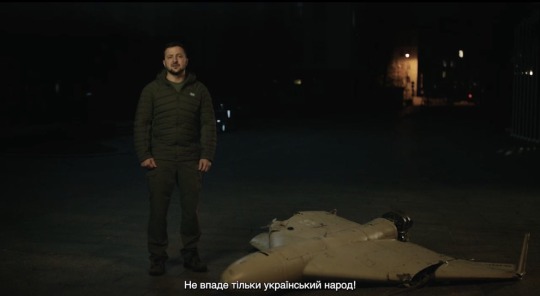
It's already midnight on the clock. October 28 is already on the calendar. Every year on this day, we celebrate the liberation of Ukraine from the Nazi occupiers. We pay tribute to the Ukrainians who fought and defeated Nazism during World War II. Today we do it, holding not flowers in our hands, but weapons. Today, preserving the memory of the exploits of our ancestors means protecting their achievements. We remember the expulsion of the Nazis, approaching the expulsion of the Rashists.
Evil, which seemed to have been finally defeated and burned to the ground in 1945, is reborn from the ashes 80 years later. Gets on its feet. It becomes possible. How did it turn out? Imperceptibly. And very quickly. Just as one day changes another. Instantly. A new day and a new evil are coming instantly. At the very moment when the world does not notice. Some are sleepy, some are fast asleep. Some are not paying attention. Some do not care. And in general, everyone is silent and thinks the same: I will not be affected. The war is somewhere far away. Somewhere in Transnistria. This is the problem of Moldovans. Somewhere in Abkhazia and Ossetia. This is the problem of Georgians. Somewhere in Crimea and Donbas. This is the problem of Ukrainians. We will not be affected. It will not cause damage to us. They will not come for us. Unfortunately, as a result, it becomes everyone's problem.
Sooner or later, memories of a terrible war become a terrible reality. The neighbor becomes the aggressor. The aggressor becomes a terrorist. And Nazism becomes an example to follow. It may come in a new guise, with new slogans, but with the same goal. Unfortunately, it is not from books that we know about it. We know how evil can break into your house in the last century, eight years ago and eight months ago. Violate the western borders or come from the north, east and annexed Crimea. Attack peaceful cities with bombs or cruise missiles.
Mine the Dnipro HPP or seize the Zaporizhzhia NPP. Drop bombs despite the red cross or the "Children" inscription. Steal grain according to the "Hunger Plan" or threaten the entire planet with hunger.
Abduct and deport people. Abduct and deport children. The form of evil has changed, but the essence has remained unchanged.
Evil always begins in the same way. The invaders call themselves liberators. The invasion of one's army is called self-defense. As 80 years ago, the Ukrainian people stand up for the defense of their native land. And the enemy's blitzkrieg plan becomes a failure.
Evil always acts in the same way. Kills civilians, assuring that it hits military targets only. Arranges blockades and filtration camps. And Syrets becomes Olenivka. Destroys cities and villages. And Koryukivka becomes Bucha.
But sooner or later war crimes become known. The reaction of the world becomes painful. The policy of appeasement becomes a tough countermeasure.
The evil finds itself in a zugzwang.
So evil always ends the same way. The occupier becomes a capitulator. The invader becomes a fugitive. War criminals become defendants, aggression becomes a sentence. Destruction becomes reparations. Enemy equipment becomes museum exhibits. The feats of grandfathers become the victories of grandchildren.
The day of the liberation of Ukraine from the Nazis on the 247th day of our struggle becomes a symbol: the result of our struggle definitely becomes the liberation of our Ukraine. The captured territory becomes free. This has always been the case in the past, and will certainly be the case in the future. In the future of Kherson, Donbas, Luhansk, Crimea. Because our land always becomes free. Resistance becomes pride. Struggle becomes victory. And Ukraine becomes united!
Today, Russia's only tactic has become terror. Defeat is the only possible outcome of such tactics. Terror became a proof of their weakness and a test of our resilience.
We will not be broken by shelling. The enemy's rockets in our sky are less scarier than hearing the enemy's anthem on our land. We are not afraid of the dark.
The darkest times for us are not without light, but without freedom. Our warriors are strong, volunteers are tireless, partners are reliable, and people are indomitable.
The second army of the world will become smaller and smaller. The losses of the enemy will become bigger and bigger. I am confident that enemy propaganda does not work, provocations do not work, threats do not scare. Any hard winter will not scare us as well.
We know that the darkest night comes before dawn. We know that all invaders flee our land in the same way. Gauleiters and self-appointed "governors" end up the same.
Reichskommissariats and quasi-republics die equally. And all our cities will definitely have our flags. Both Junkers and kamikaze drones fall equally. And in our sky there will definitely be our birds, our blue sky, our "Mriya"!
Glory to all who fought against Nazism during World War II! Glory to all who are fighting for Ukraine today!
Glory to our people who will go down in history!
Glory to Ukraine!
- President of Ukraine, Volodymyr Zelenskyy
107 notes
·
View notes
Text
Georgia is home to 11 endangered languages, according to UNESCO. Like standard Georgian, three of these belong to the Kartvelian language family. But unlike the country’s primary language, Megrelian (or Mingrelian), Svan, and Laz do not enjoy official status or protection. Nor are there official figures on the exact number of speakers, due in part to persistent fears that promoting smaller Kartvelian languages could fuel linguistic nationalism or, worse, separatism. For Georgians, separatism is not an abstract concept: the country fought bitter wars in the early 1990s in Abkhazia and South Ossetia, two breakaway regions that Russia occupied as the result of another war in 2008. Moscow’s habit of instigating and exploiting separatist sentiment in neighboring countries only causes more concern. That said, language advocates maintain that their cause has nothing to do with secession and everything to do with preserving Georgia’s cultural heritage.
This story first appeared in The Beet, a weekly email dispatch from Meduza covering Central and Eastern Europe, the Caucasus, and Central Asia. Sign up here to get the next issue delivered directly to your inbox.
In July 2023, a new translation of the Bible was released in Georgia — the first edition ever published in the Megrelian language. Completed at the independent initiative of Giorgi Sakhokia, a 75-year-old Megrelian speaker, the translation sparked debate on social media. Since the Bible is already available in the Georgian language, critics wondered, why is this translation necessary at all?
Like Georgian, Megrelian is part of the Kartvelian language family, along with Svan and Laz. While many linguists consider these separate languages, Georgians often refer to the latter three as dialects. But the mutual intelligibility between Megrelian and Georgian is very low, Thomas Wier, an assistant professor of linguistics at Free University of Tbilisi, told The Beet.
According to the 2021 Caucasus Barometer survey, seven percent of Georgians speak Megrelian in daily life. The number of Megrelian speakers in Georgia is estimated at around 300,000 people, most of whom reside in the western Samegrelo region on the Black Sea coast. Yet, the language has no official status and, as a result, remains primarily a spoken language, seldom used in writing.
Melor Shengelia was born in Samegrelo’s regional capital, Zugdidi, and has spoken Megrelian with his family since childhood. But his younger relatives are no longer learning the language, he says. The generation of children growing up in the region today are becoming what’s known as “passive speakers,” meaning their parents speak to them in Megrelian, but they respond in Georgian — the language they see in the media, speak with friends, and study in school.
“[Parents] prefer that their kids know Georgian, and kids prefer to know English to use TikTok. [...] Everything is in English or in Georgian,” said Maka Chitanava, who’s also from Zugdidi and speaks Megrelian with her close family members.
The declining use of Megrelian has led UNESCO to designate the language as “definitely endangered.” This classification signifies that children “no longer learn the language as a mother tongue at home,” raising fears that it may eventually disappear.
“My nephews are seven or eight years younger than me and when they start speaking Megrelian, it’s so broken, they make so many mistakes,” said Shengelia, who’s 25 years old. “Even though they can understand, they can't speak properly. That means that their children won't be able to speak Megrelian.”
‘Languages die out, domain by domain’
Most Georgians rarely encounter smaller Kartvelian languages in their daily lives. Natia Liluashvili, who grew up in Georgia’s Imereti region, heard Megrelian for the first time while on a school trip to Samegrelo when she was about 14 years old. The fact that she couldn’t understand the language people were speaking around her was a shock.
“When I came [to Zugdidi] and was walking down the street, I knew I was still in Georgia — but people were speaking a different language,” Liluashvili recalled. “I couldn't understand anything.”
She also remembers singing songs in Megrelian at school, although she didn’t understand the words.
Shengelia says he often encounters people in Tbilisi, Georgia’s capital, who are surprised to learn that his family speaks Megrelian at home. “Even though everyone knows that Megrelian people speak Megrelian, it’s still kind of surprising for them,” he told The Beet. “They just don't have that much information about [it].”
Then there’s the fact that the vast majority of Megrelian speakers are bilingual. As a result, they tend to code switch, alternating languages based on the circumstances or listener at hand. Shengelia, who has lived in Tbilisi for six years, typically speaks Georgian unless he meets another Megrelian speaker. In Samegrelo, he uses Megrelian with his family and friends, and in places like the grocery store, but he opts for Georgian when he’s in what he deems more “formal” spaces such as a bank, a government institution, or a hospital.
“Languages typically don't die out all at once. They die out, domain by domain, whether you use it in public, school, or at the doctor’s office,” Wier explained.
Over time, Georgian loan words have also made their way into the Megrelian language. According to Timothy Blauvelt, a professor of Soviet and Post-Soviet Studies at Ilia State University in Tbilisi, this is due to the limited written documentation of the language, which leads Megrelian speakers to fill in their vocabulary gaps with borrowed words.
“This is one of the biggest problems for the Megrelian language. It has so many Georgian and Russian words, even though there are actual words in Megrelian [with] the same meaning,” Shengelia said. “Sometimes when my grandmother and grandfather say [certain] words, I’m surprised; I didn’t think we had a word for that.”
Svan song
Unexpected events can suddenly and drastically alter linguistic communities. The steep decline of the Svan language is a prime example, Wier told The Beet.
In 1987, a series of avalanches devastated Georgia’s mountainous Svaneti region, damaging Svan villages and killing 85 people. The Soviet authorities decided to evacuate 16,000 residents, most of whom were Svan speakers. Around 2,500 families were resettled elsewhere in Georgia, and the Svan language became endangered in a matter of years. The migration of Georgian and Megrelian speakers into Svaneti, who communicate with Svan speakers in Georgian, further exacerbated language loss in the region.
UNESCO classified Svan as “definitely endangered” in 2011. But Wier fears the language is now at risk of going extinct. “If there’s not a systematic sea change for the Svan language in terms of people’s attitudes and in terms of government funding and aid to communities, I think this one will die out, because its current status has just so drastically declined in just the last 30 years,” he said.
Teaching Georgia’s endangered languages in schools is one possible remedy: Chitanava believes that Megrelian should be taught in the Samegrelo region at least. “In Georgian language classes, we could have a few topics devoted to the Megrelian and Svan languages and maybe also Laz,” she suggested. “So kids can understand how these languages are related, what is interesting about these languages, and that it’s [part of] their cultural heritage.”
Georgian President Salome Zourabichvili has expressed support for teaching Megrelian and Svan in schools. But overall, there’s little political will to provide any government assistance for these endangered languages, primarily due to the association of linguistic identity with ethnicity and, by extension, the belief that granting language rights could spark separatist sentiment.
According to Givi Karchava, the co-founder of the Megrelian Language Association, this attitude is one of the biggest challenges his organization faces — besides a lack of funding. “Any type of activity which shows Megrelian as equal to the Georgian language [...] is understood as separatism,” he said.
The prospect of Georgia signing the European Language Charter, which would mandate the necessary steps to protect and promote minority languages, provokes similar concerns, experts told The Beet.
“There’s basically all these fears about the territorial disintegration of Georgia that some people have,” said David Sichinava, an adjunct research professor at Carleton University. The debate around language rights, he explained, triggers anxieties about a possible domino effect wherein minority populations demand greater autonomy. “That’s a challenge that perhaps is causing these languages [to be neglected],” Sichinava surmised.
“My personal opinion is that signing the document [the European Language Charter] or ratifying it is too politically charged and probably will be for a long time,” Blauvelt said.
A historical legacy
The widespread fear of separatism in Georgia stems from recent history, namely, the 1991–1993 Georgian Civil War, which saw intense fighting between Tbilisi and the separatist regions of Abkhazia and South Ossetia, and the 2008 war with Russia, when Moscow occupied the breakaway territories.
These wars significantly impacted the distribution of Megrelian speakers. The hostilities in Abkhazia in the 1990s displaced more than 200,000 people, including tens of thousands of Megrelian-speaking Georgians who fled to neighboring Samegrelo and other regions. The 2008 war also caused large-scale displacement.
Melor Shengelia’s mother fled Abkhazia’s capital, Sokhumi, during the war in the 1990s and then moved to Samegrelo. Shengelia’s grandfather stayed behind to defend the family home. “People have this fear of separatism, [but] they have to remember that Megrelians were the people who were fighting for Abkhazia [to remain part of Georgia],” Shengelia recalled. “They don’t have any intention to separate from the rest of the Georgians.”
That said, the understanding of language as intrinsically linked to ethnicity has deep roots in Georgia, going back to the Soviet Union’s nationality policy, Blauvelt told The Beet. First introduced in the 1920s, this “nation-building” program assigned officially recognized ethnic groups — referred to as “nationalities” — their own territories within the USSR and promoted national languages through culture and education. (This policy was rolled back in the 1930s, giving way to political purges, deportations of groups deemed “enemy nations,” and Russification).
“The Soviet understanding is really still fundamental in shaping the way people view their own identity [and] why they view national identity as something primordial, something unchanging,” Blauvelt explained. “This question of dialect and language, and where these minority languages fit, is so politically charged, because it’s ultimately part of those discourses of ’national greatness’ and national identity.”
The authorities in Georgia haven’t recorded Megrelian speakers as a distinct group since the 1926 Soviet census. And when Russia added this category to its own census in 2010, only 600 respondents identified as Megrelians.
‘We shouldn’t sacrifice our cultural heritage’
Shengelia says it’s fundamentally misguided to fear that promoting Megrelian could lead to separatism. “The Megrelian language belongs to Georgia and all Georgian people. By underlining that it’s only the language of Megrelian speakers, you are promoting this kind of separation,” he argued. “Megrelian speakers don't think that it’s only their language.”
According to Sichinava, activists working to preserve Megrelian and Svan also share this view. “What’s important and what’s so interesting is that none of those activists say that we are different peoples. They say, ‘We want to preserve the language, but we are Georgian,’” he noted.
The Beet’s other sources also felt that identity politics shouldn’t impede efforts to keep Georgia’s endangered languages alive.
Despite the challenges, Chitanava believes that shifting attitudes in recent years may increase the odds of maintaining Georgia’s language diversity. “Thirty years have already passed since our independence and our war in Abkhazia. I think this pain and fear of the country’s disintegration is less [prevalent],” she told The Beet. “We shouldn’t sacrifice our cultural heritage to these fears and phobias.”
Although not a Megrelian speaker, Liluashvili said that she supports initiatives to preserve the language — including the possibility of teaching it in schools — because it’s part of Georgia’s heritage. “It's our culture. Especially when we are such a small country, we should protect and save our diversity,” she said. “Language is one of the most important parts of diversity.”
For now, however, efforts to preserve Georgia’s smaller Kartvelian languages are concentrated at the grassroots level. In 2018, software developer Hary Kodua created an online Megrelian-Georgian dictionary to make the language more accessible to young people. At this writing, the dictionary contains 120,000 words.
In 2020, Givi Karchava and Giga Kavtaradze founded the Megrelian Language Association with the goal of “saving the Megrelian language from disappearing.” Today, the group publishes Megrelian-language books, runs a magazine, and coordinates seminars.
Megrelian and Svan self-study books are also available, as is a Megrelian version of Wikipedia and translations of well-known fiction, such as the Georgian epic The Knight in the Panther’s Skin.
Karchava himself translated George Orwell’s Animal Farm and Antoine de Saint-Exupéry’s The Little Prince into Megrelian. “Georgian society and the state are more tolerant toward the Megrelian language now,” he told The Beet. “Let’s see what happens next. We are full of hope.”
8 notes
·
View notes